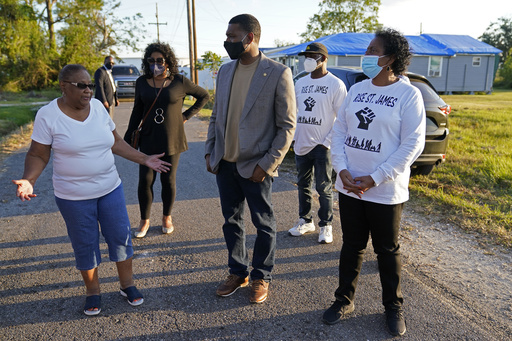
(RNS) — In September, Val Smith, the chief sustainability officer at Citigroup, a prominent American bank, engaged in discussions with a group of four religious environmental advocates regarding the bank’s investments in fossil fuels.
Though Citigroup had committed to achieving net-zero carbon emissions by the year 2050, independent studies have labeled the bank as one of the top global financiers of oil, coal, and gas initiatives.
“We asked Citi for their reasoning behind their ongoing investment in fossil fuels, but they were unable to provide a clear justification,” remarked Rabbi Jacob Siegel, a climate advisor for Dayenu, a Jewish organization that has been active for four years in tackling the climate emergency.
The religious activists secured their meeting with Smith through the Summer of Heat initiative, which had orchestrated over 40 protests outside Citigroup’s headquarters located in Lower Manhattan.
In one particularly striking demonstration, clergy from various faiths appeared in white outfits and clerical collars at Citigroup’s entrance while displaying signs featuring crosses, Stars of David, and other religious symbols.
Their approach was characterized by a somber yet profound demeanor, using singing and candlelight to invoke what they described as sacred energy during the protests.
However, this solemnity did not equate to passivity; at various points throughout the demonstration season, faith leaders joined forces to block employees from entering the building, resulting in long lines of staff waiting to begin their workday.
Rev. Chelsea MacMillan, an interspiritual minister and organizer for GreenFaith, noted the significant impact of religious figures in these protests.
“The dynamic shifts entirely when people of faith participate,” she observed. “You can sense that our involvement is driven by a sacred responsibility, and that can be unsettling for some.”
The Summer of Heat highlights a burgeoning, vocal movement among faith-based environmental groups spanning multiple traditions, who are now employing diverse tactics beyond mere marches.
“We aim to identify faith organizations banking with Citi that are contemplating severing their relationships due to moral concerns,” added Fletcher Harper, the director of GreenFaith.
Siegel, representing Dayenu—meaning “enough” in Hebrew—encourages synagogues, educational institutions, and community centers to consult resources like Banking on Climate Chaos and Green America’s Get a Better Bank to assist in transferring their funds to more ethically aligned banking institutions.
“This is not only an issue of business but also one of morality,” Harper explained. “How does Citi rationalize not just the inconvenience caused but the actual harm inflicted on communities due to their destructive practices?”
A spokesperson for Citibank acknowledged the meeting with religious leaders, stating, “Citi welcomes productive discussions with stakeholder organizations such as GreenFaith. Our commitment to addressing climate change through financing is firmly established, balancing the need for a transition while still attending to global energy demands—these objectives can coexist.”
Founded in New Jersey in 1992, GreenFaith began as a grassroots volunteer entity called Partners for Environmental Quality, advocating for faith communities to use renewable energy sources.
Harper, who was then an Episcopal priest, led the organization after its rebranding to GreenFaith in 2002.
Reflecting on his motivation for religious leadership, Harper cited notable figures like Gandhi and Dr. Martin Luther King Jr., who utilized their spiritual platforms for social progress.
“I believed that religious institutions had to acknowledge the reality of environmental destruction and that a united front among diverse faiths was crucial.”
Early initiatives by GreenFaith included conducting energy audits, installing solar panels, and organizing “toxic tours” to educate faith leaders regarding polluted environments, such as those in Newark.
The visibility of these actions expanded, leading GreenFaith to showcase their work at interfaith gatherings nationwide, conducting workshops on various religious texts and their ecological teachings.
Their focus shifted toward financial parallels in the 2010s.
Emphasizing this change, Harper noted GreenFaith’s role in mobilizing hundreds of faith communities to impact the People’s Climate March in 2014, viewing it as instrumental in shaping the Paris Agreement signed in 2016, which aimed to combat climate change.
Since then, several denominations, such as the Unitarian Universalist Association and the Evangelical Lutheran Church in America, have undertaken divestment efforts from the fossil fuel industry.
In addition, GreenFaith has allied with local organizations responding to environmental injustices.
In August, members stood with Rise St. James, a group focused on environmental advocacy in Louisiana, protesting against Formosa Plastics, which is partially bankrolled by Citigroup.
Formosa plans to build a vast petrochemical complex in St. James Parish, a historically marginalized locality grappling with pollution-related health crises in what’s known as “Cancer Alley.”
Some activists from Louisiana made their way to Livingston, where MacMillan was arrested during a protest, emphasizing her commitment to the cause by stating, “As Rabbi Heschel said, I’m praying with my feet.”
Such actions reflect a tangible expression of faith and conviction.
Sharon Lavigne, who established Rise St. James, was moved to action after examining her community’s alarming health dilemmas.
“I couldn’t comprehend the frequency of funerals we were holding,” she stated.
Since her diagnosis with autoimmune hepatitis in 2016, Lavigne has dedicated herself to raising public awareness about environmental hazards affecting her community.
While Lavigne was not detained during the Livingston demonstration, she and her peers attended a following prayer service at a local church.
“Often, I feel frustration since our cry for help seems unheard by politicians,” Lavigne expressed. “Thus, we’re reaching out to God for guidance and assistance.”
